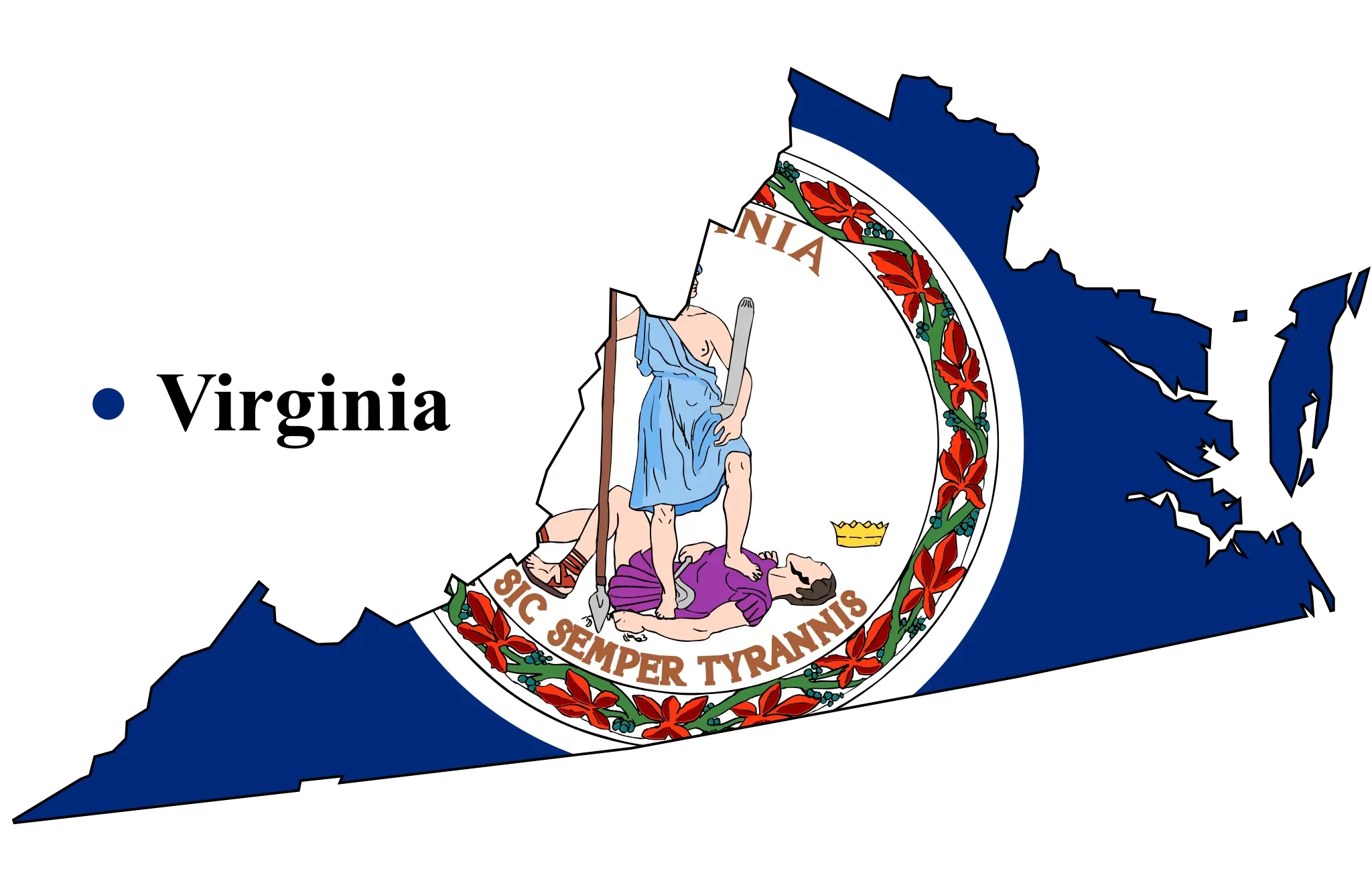Virginia

Virginia’s judiciary system is an intricate network designed to uphold law and order, resolve disputes, and protect individual rights. The system comprises various courts, each having a specific function and jurisdiction.
The Virginia Court System Structure
The judiciary system in Virginia operates at several levels, and each court has its unique role and responsibilities.
General District Courts
General District Courts are the first level of the Virginia judiciary system, handling minor civil and criminal cases. They do not conduct jury trials; a judge hears all cases.
Juvenile and Domestic Relations District Courts
These courts are responsible for cases involving juveniles, family disputes, and domestic issues. They play a crucial role in protecting the rights of children and families.
Circuit Courts
Circuit Courts are the principal trial courts in Virginia, dealing with major civil and criminal cases. They also handle appeals from the lower courts.
Court of Appeals
The Court of Appeals of Virginia provides a second level of review for decisions made by lower courts. It’s a crucial part of the system to ensure fairness and justice.
Supreme Court of Virginia
As the highest court in the state, the Supreme Court of Virginia has the final say on legal interpretations and decisions.
The Role and Responsibilities of Virginia’s Courts
Maintaining Law and Order
One of the key responsibilities of the courts is to maintain law and order. They enforce state laws and regulations, ensuring a peaceful society.
Resolving Disputes
Courts serve as the primary platform for resolving disputes, whether they are between individuals, businesses, or government entities.
Protecting Individual Rights
Courts also play a vital role in protecting individual rights, making sure every citizen enjoys the freedoms guaranteed by the Constitution.
The Process of Judicial Decision Making in Virginia
The process of judicial decision making in Virginia is designed to ensure fair and unbiased rulings. It involves detailed analysis, deliberation, and application of relevant laws.
Noteworthy Cases in Virginia’s Legal History
Over the years, Virginia’s courts have presided over numerous noteworthy cases that have shaped the state’s legal landscape.
The Role of the Public in the Virginia Judicial System
Jury Service
Jury service is a crucial part of the public’s role in the judiciary system, allowing citizens to contribute directly to the administration of justice.
Public Participation in Court Proceedings
The Virginia judiciary system encourages public participation in court proceedings, promoting transparency and accountability.
The Impact of Technology on Virginia’s Judiciary System
Technology has profoundly impacted Virginia’s judiciary system, introducing new ways of managing cases and court proceedings. It has led to a more efficient and transparent judiciary, from electronic filing of cases to virtual court proceedings.
The Future of Virginia’s Judiciary System
The future of Virginia’s judiciary system is geared towards more efficiency, transparency, and accessibility. With technology playing an increasingly pivotal role, the aim is to make justice more readily available to every citizen of Virginia.
Conclusion
In conclusion, the Courts and Judiciary System in Virginia play a vital role in upholding law and order, protecting rights, and ensuring fair dispute resolution. It’s a dynamic system that continues to evolve to meet the demands of modern society.
FAQs
- What is the role of the Supreme Court in the Virginia judiciary system?
The Supreme Court is the highest court in Virginia. It has the final say on legal interpretations and decisions in the state. - What cases do the General District Courts handle?
General District Courts handle minor civil and criminal cases. All cases in these courts are heard by a judge, not a jury. - How does technology impact the Virginia judiciary system?
Technology has made the judiciary system more efficient and accessible. It allows for electronic filing of cases and virtual court proceedings. - How can the public participate in the Virginia judiciary system?
The public can participate in the judiciary system in various ways, including serving on a jury and attending court proceedings. - What is the future of the Virginia judiciary system?
The future of the judiciary system in Virginia is geared towards more efficiency, transparency, and accessibility. The aim is to make justice more readily available to every citizen of Virginia.
Counties in Virginia
in
Counties
Here are all of the Counties in Virginia.
Independent cities
of Virginia
Detail of every Independent cities is here.
City of Alexandria
City of Bedford
City of Bristol
City of Buena Vista
City of Charlottesville
City of Chesapeake
City of Colonial Heights
City of Covington
City of Danville
City of Emporia
City of Fairfax
City of Falls Church
City of Franklin
City of Fredericksburg
City of Galax
City of Hampton
City of Harrisonburg
City of Hopewell
City of Lexington
City of Lynchburg
City of Manassas
City of Manassas Park
City of Martinsville
City of Newport News
City of Norfolk
City of Norton
City of Petersburg
City of Poquoson
City of Portsmouth
City of Roanoke
City of Salem
City of Staunton
City of Suffolk
City of Virginia Beach
City of Waynesboro
City of Williamsburg
City of Winchester
See Other Courts in US
Alabama | Alaska | Arizona | Arkansas | California | Colorado | Connecticut | Delaware | Florida | Georgia | Hawaii | Idaho | Illinois | Indiana | Iowa | Kansas | Kentucky | Louisiana | Maine | Maryland | Massachusetts | Michigan | Minnesota | Mississippi | Missouri | Montana | Nebraska | Nevada | New Hampshire | New Jersey | New Mexico | New York | North Carolina | North Dakota | Ohio | Oklahoma | Oregon | Pennsylvania | Rhode Island | South Carolina | South Dakota | Tennessee | Texas | Utah | Vermont | Virginia | Washington | West Virginia | Wisconsin | Wyoming
